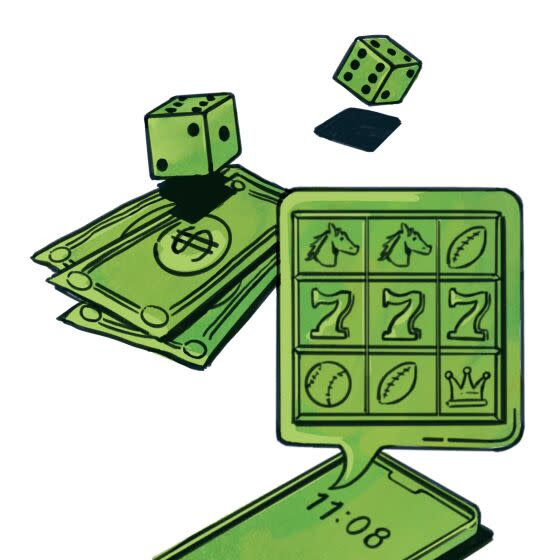Your guide to Proposition 26 on the 2022 California midterm ballot

California voters will decide the fate of seven statewide propositions on Nov. 8.
The propositions, like all state ballot measures, require approval by a simple majority of voters for passage. Unless otherwise specified, propositions approved by voters will take effect once the election results are certified in December.
Here’s what you need to know about Proposition 26.
Proposition 26: Sports wagering
Proposition 26 would legalize in-person sports betting on tribal lands and at four horse-racing tracks. The racetracks would pay a 10% tax on sports-wagering profits, a portion of which would be used for legal enforcement and problem-gambling programs. Along with gambling on sports, the tribes also would be allowed to offer roulette, as well as craps and other dice games, if permitted by individual tribal gambling agreements with the state. Betting on high school sports and California college teams would be banned.
California’s major gaming tribes support Proposition 26, and fear that competition created under Proposition 27, a competing measure supported by gambling companies, including FanDuel and DraftKings, would cut into a major part of California’s gambling market at tribal casinos. Supporters and opponents of the two measures already have poured hundreds of millions of dollars into the campaigns.
Negative campaign ads turning off voters
A recent poll from the UC Berkeley Institute of Governmental Studies, co-sponsored by The Times, found that likely voters in California who have seen a lot of ads about the Propositions 26 and 27 were more opposed to the measures than those who had not seen any ads. Supporters of both ballot measures have aired a barrage of negative ads attacking the competing proposition.
“I think it’s the negative advertisements that have kind of been turning voters away,” said Berkeley IGS poll director Mark DiCamillo. “People who haven’t seen the ads are about evenly divided, but people who’ve seen a lot of ads are against it. So, the advertising is not helping.”
And that's bad news for both ballot measures. The poll found that Proposition 26 earned only 31% support from likely voters, compared with 42% opposed, according to the Berkeley survey of 6,939 likely California voters. Proposition 27 fared even worse — 27% of likely voters in support and 53% opposed.
Past coverage
Other propositions on the ballot
Learn more about all seven ballot propositions on the November ballot.
L.A. Times Editorial Board Endorsements
The Times’ editorial page publishes endorsements based on candidate interviews and independent reporting. The editorial board operates independently of the newsroom — reporters covering these races have no say in the endorsements.
How and where to vote
Ballots will be in the mail to all 22 million registered voters in the state no later than Oct. 10. Californians can return ballots by mail, drop them at collection boxes or turn them in at voting centers. They can also cast ballots early at voting centers or wait until Nov. 8 to vote at their neighborhood polling places.
Californians can register to vote or check their status at https://registertovote.ca.gov/.
Follow more election coverage
More News
This story originally appeared in Los Angeles Times.
